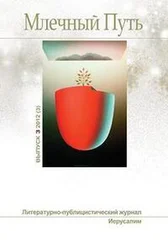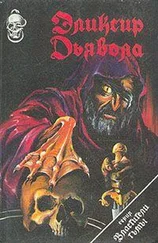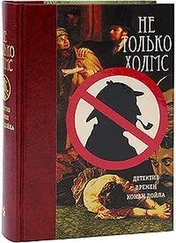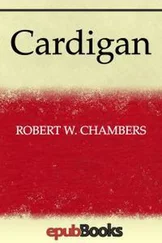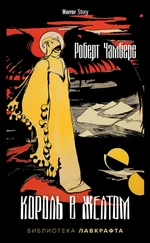Роберт Чамберс - A Young Man in a Hurry
Здесь есть возможность читать онлайн «Роберт Чамберс - A Young Man in a Hurry» весь текст электронной книги совершенно бесплатно (целиком полную версию без сокращений). В некоторых случаях можно слушать аудио, скачать через торрент в формате fb2 и присутствует краткое содержание. Год выпуска: 2014, Издательство: epubBooks Classics, Жанр: Классическая проза, на английском языке. Описание произведения, (предисловие) а так же отзывы посетителей доступны на портале библиотеки ЛибКат.
- Название:A Young Man in a Hurry
- Автор:
- Издательство:epubBooks Classics
- Жанр:
- Год:2014
- ISBN:нет данных
- Рейтинг книги:5 / 5. Голосов: 1
-
Избранное:Добавить в избранное
- Отзывы:
-
Ваша оценка:
- 100
- 1
- 2
- 3
- 4
- 5
A Young Man in a Hurry: краткое содержание, описание и аннотация
Предлагаем к чтению аннотацию, описание, краткое содержание или предисловие (зависит от того, что написал сам автор книги «A Young Man in a Hurry»). Если вы не нашли необходимую информацию о книге — напишите в комментариях, мы постараемся отыскать её.
A Young Man in a Hurry — читать онлайн бесплатно полную книгу (весь текст) целиком
Ниже представлен текст книги, разбитый по страницам. Система сохранения места последней прочитанной страницы, позволяет с удобством читать онлайн бесплатно книгу «A Young Man in a Hurry», без необходимости каждый раз заново искать на чём Вы остановились. Поставьте закладку, и сможете в любой момент перейти на страницу, на которой закончили чтение.
Интервал:
Закладка:
"Is it you, little path–master?" he said, in an altered voice. Then something came into his filmy eyes which she knew was a smile.
"I wanted to tell you," he began, "I will work out my taxes—somewhere—for you—"
The path–master hid her white face in her hands. Presently the collie dog came and laid his head on her shoulder.
In Nauvoo
The long drought ended with a cloud–burst in the western mountains, which tore a new slide down the flank of Lynx Peak and scarred the Gilded Dome from summit to base. Then storm followed storm, bursting through the mountain–notch and sweeping the river into the meadows, where the haycocks were already afloat, and the gaunt mountain cattle floundered bellowing.
The stage from White Lake arrived at noon with the mail, and the driver walked into the post–office and slammed the soaking mail–sack on the floor.
"Gracious!" said the little postmistress.
"Yes'm," said the stage–driver, irrelevantly; "them letters is wetter an' I'm madder 'n a swimmin' shanghai! Upsot? Yes'm—in Snow Brook. Road's awash, meadders is flooded, an' the water's a–swashin' an' a–sloshin' in them there galoshes." He waved one foot about carelessly, scattering muddy spray, then balanced himself alternately on heels and toes to hear the water wheeze in his drenched boots.
"There must be a hole in the mail–pouch," said the postmistress, in gentle distress.
There certainly was. The letters were soaked; the wrappers on newspaper and parcel had become detached; the interior of the government's mail–pouch resembled the preliminary stages of a paper–pulp vat. But the postmistress worked so diligently among the débris that by one o'clock she had sorted and placed in separate numbered boxes every letter, newspaper, and parcel—save one.
That one was a letter directed to
"
James Helm, Esq.
"
Nauvoo
, via
White Lake
."
and it was so wet and the gum that sealed it was so nearly dissolved that the postmistress decided to place it between blotters, pile two volumes of government agricultural reports on it, and leave it until dry.
One by one the population of Nauvoo came dripping into the post–office for the mail, then slopped out into the storm again, umbrellas couched in the teeth of the wind. But James Helm did not come for his letter.
The postmistress sat alone in her office and looked out into her garden. It was a very wet garden; the hollyhocks still raised their flowered spikes in the air; the nasturtiums, the verbenas, and the pansies were beaten down and lying prone in muddy puddles. She wondered whether they would ever raise their heads again—those delicate flower faces that she knew so well, her only friends in Nauvoo.
Through the long drought she had tended them, ministering to their thirst, protecting them from their enemies the weeds, and from the great, fuzzy, brown–and–yellow caterpillars that travelled over the fences, guided by instinct and a raging appetite. Now each frail flower had laid its slender length along the earth, and the little postmistress watched them wistfully from her rain–stained window.
She had expected to part with her flowers; she was going away forever in a few days—somewhere—she was not yet quite certain where. But now that her flowers lay prone, bruised and broken, the idea of leaving them behind her distressed her sorely.
She picked up her crutch and walked to the door. It was no use; the rain warned her back. She sat down again by the window to watch her wounded flowers.
There was something else that distressed her too, although the paradox of parting from a person she had never met ought to have appealed to her sense of humor. But she did not think of that; never, since she had been postmistress in Nauvoo, had she spoken one word to James Helm, nor had he ever spoken to her. He had a key to his letter–box; he always came towards evening.
It was exactly a year ago to–day that Helm came to Nauvoo—a silent, pallid young fellow with unresponsive eyes and the bearing of a gentleman. He was cordially detested in Nauvoo. For a year she had watched him enter the post–office, unlock his letter–box, swing on his heel and walk away, with never a glance at her nor a sign of recognition to any of the village people who might be there. She heard people exchange uncomplimentary opinions concerning him; she heard him sneered at, denounced, slandered.
Naturally, being young and lonely and quite free from malice towards anybody, she had time to construct a romance around Helm—a very innocent romance of well–worn pattern and on most unoriginal lines. Into this romance she sometimes conducted herself, blushing secretly at her mental indiscretion, which indiscretion so worried her that she dared not even look at Helm that evening when he came for his mail. She was a grave, gentle little thing—a child still whose childhood had been a tragedy and whose womanhood promised only that shadow of happiness called contentment which comes from a blameless life and a nature which accepts sorrow without resentment.
Thinking of Helm as she sat there by the window, she heard the office clock striking five. Five was Helm's usual hour, so she hid her crutch. It was her one vanity—that he should not know that she was lame.
She rose and lifted the two volumes of agricultural reports from the blotters where Helm's letter lay, then she carefully raised one blotter. To her dismay half of the envelope stuck to the blotting–paper, leaving the contents of the letter open to her view.
On the half–envelope lay an object apparently so peculiarly terrifying that the little postmistress caught her breath and turned quite white at sight of it. And yet it was only a square bit of paper, perfectly blank save for half a dozen thread–like lines scattered through its texture.
For a long while the postmistress stood staring at the half–envelope and the bit of blank paper. Then with trembling fingers she lighted a lamp and held the little piece of paper over the chimney—carefully. When the paper was warm she raised it up to the light and read the scrawl that the sympathetic ink revealed:
"I send you a sample of the latest style fibre. Look out for the new postmaster at Nauvoo. He's a secret–service spy, and he's been sent to see what you are doing. This is the last letter I dare send you by mail."
There was no signature to the message, but a signature was not necessary to tell the postmistress who had written the letter. With set lips and tearless eyes she watched the writing fade slowly on the paper; and when again the paper was blank she sank down by the window, laying her head in her arms.
A few moments later Helm came in wrapped in a shining wet mackintosh. He glanced at his box, saw it was empty, wheeled squarely on his heels, and walked out.
Towards sunset the rain dissolved to mist; a trail of vapor which marked the course of an unseen brook floated high among the hemlocks. There was no wind; the feathery tips of the pines, powdered with rain–spray, rose motionless in the still air. Suddenly the sun's red search–light played through the forest; long, warm rays fell across wet moss, rain–drenched ferns dripped, the swamp steamed. In the east the thunder still boomed, and faint lightning flashed under the smother of sombre clouds; but the storm had rolled off among the mountains, and already a white–throated sparrow was calling from the edge of the clearing. It promised to be a calm evening in Nauvoo.
Meanwhile, Helm walked on down the muddy road, avoiding the puddles which the sun turned into pools of liquid flame. He heard the catbirds mewing in the alders; he heard the evening carol of the robin—that sweet, sleepy, thrushlike warble which always promises a melody that never follows; he picked a spray of rain–drenched hemlock as he passed, crushing it in his firm, pale fingers to inhale the fragrance. Now in the glowing evening the bull–bats were soaring and tumbling, and the tree–frogs trilled from the darkling pastures.
Читать дальшеИнтервал:
Закладка:
Похожие книги на «A Young Man in a Hurry»
Представляем Вашему вниманию похожие книги на «A Young Man in a Hurry» списком для выбора. Мы отобрали схожую по названию и смыслу литературу в надежде предоставить читателям больше вариантов отыскать новые, интересные, ещё непрочитанные произведения.
Обсуждение, отзывы о книге «A Young Man in a Hurry» и просто собственные мнения читателей. Оставьте ваши комментарии, напишите, что Вы думаете о произведении, его смысле или главных героях. Укажите что конкретно понравилось, а что нет, и почему Вы так считаете.


